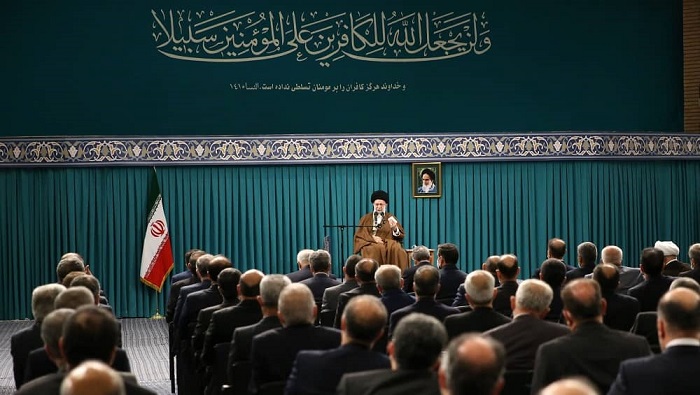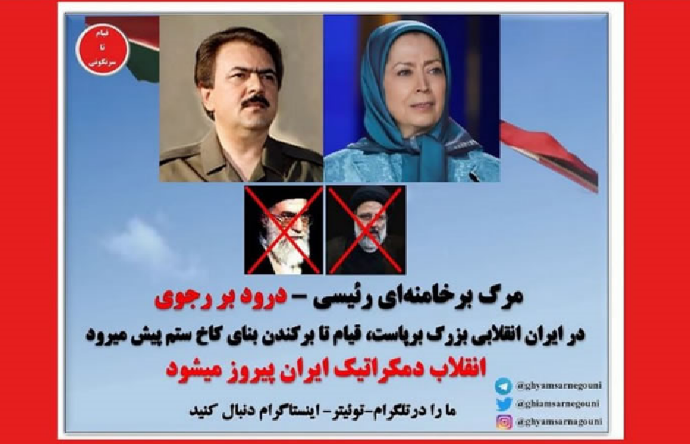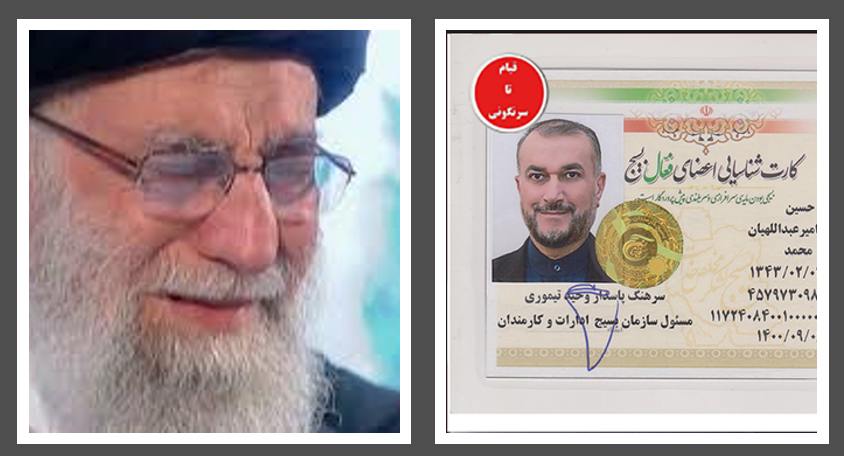
Khamenei, known for his persistent commitment to the “consolidation of power” agenda, reaffirmed his regime’s policy of steadfast resistance, despite escalating tensions with the West. This comes in the wake of President Ebrahim Raisi’s ascension to power, marked by increased belligerence and exploitation of Western powers’ lackluster responses.
The Supreme Leader refuted the idea of diplomatic compromise as a sign of weakness, urging his audience to shift their attention away from individual actions and towards broader perspectives. However, his proposed solution was steeped in controversy.
In a veiled reference to the Islamic principle of taqiyya, he suggested using ‘dissimulation or denial’ as a diplomatic tactic – effectively encouraging his diplomats to maintain a deceptive façade in international relations.
Further emphasizing his regime’s resilience, Khamenei described ‘flexibility’ as a principle to navigate challenges, citing the Joint Comprehensive Plan of Action (JCPOA) signed in 2015 as an example of ‘heroic flexibility’. He pointed out that while Tehran received significant concessions through the agreement, it did not signify a deviation from the regime’s goals.

Although Khamenei avoided direct reference to the incident, he urged Foreign Minister Hossein Amir Abdollahian to nurture and prioritize his team’s motivation and determination.
The Supreme Leader also emphasized a shift towards the “Look to the East” policy, as tensions with Western powers continue to escalate. This involves a growing reliance on China and Russia, as evident in the 25-year Cooperation Program signed with China in January 2022 and Iran’s engagement in the Ukraine conflict alongside Russian forces.
While this ‘eastward shift’ has been hailed as a strategic alignment by Khamenei, the reality of Beijing’s cautious economic involvement and Moscow’s limited capacity to influence Iran’s fate amid protests and international isolation paints a different picture.

Khamenei’s defiant comments, echoed by Abdollahian, underscore the challenges faced by international entities seeking negotiation with Iran. The international community must recognize this inherent difficulty and intensify pressure on the regime to elicit meaningful change. The dialogue with Iran, as it stands, resembles fitting a square peg in a round hole – an exercise in futility that requires a firm and resolute approach.
Any hesitancy by D int community will prompt Khamenei 2 once again move towards nuclear weapons through deception #FreeThe7 #Iran
— Maryam Rajavi (@Maryam_Rajavi) November 24, 2013
 MEK Iran (follow us on Twitter and Facebook), Maryam Rajavi’s on her site, Twitter & Facebook, NCRI (Twitter & Facebook), and People’s Mojahedin Organization of Iran – MEK IRAN – YouTu
MEK Iran (follow us on Twitter and Facebook), Maryam Rajavi’s on her site, Twitter & Facebook, NCRI (Twitter & Facebook), and People’s Mojahedin Organization of Iran – MEK IRAN – YouTu







